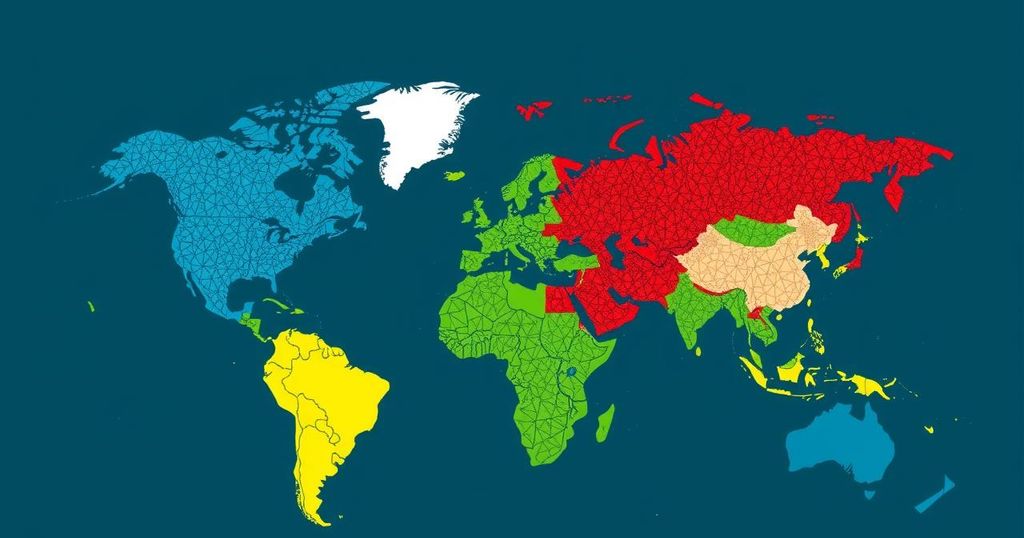Global news
Politics
ALEX BRANDON, ASIA, ASSOCIATED PRESS, AT, ATTILA STEINER, AZERBAIJAN, BAKU, COUNCIL OF, COUNCIL OF THE EU, DONALD TRUMP, EU, EUROPE, EUROPEAN UNION, FRANCESCO CORVARO, GI, GIORGIA MELONI, INTERNATIONAL RELATIONS, ITALY, KRIS, KRISTI NOEM, OAKS, PA, ORBÁN, ORBAN, PETER DEJONG, PHILIPPINES, POLITICS, PRESIDENTIAL ELECTIONS, RAF, RAFIQ MAQBOOL, SERGEI GRITS, TRUMP, TRUMP ADMINISTRATION, VIKTOR ORBAN, VIKTOR ORBÁN
Marcus Li
0 Comments
Diverging Paths in Climate Action: Trump versus Right-Wing European Governments
The article examines the contrasting climate action policies between U.S. former President Donald Trump, who opposes climate initiatives, and several right-wing European governments that advocate strong climate responsibility; Hungary’s Viktor Orbán and Italy’s Giorgia Meloni are prominent figures in this shift toward climate action, emphasizing the economic benefits and public pressure for renewable energy initiatives amidst rising global awareness about environmental issues.
In contrast to President Donald Trump’s stance against climate action, which is characterized by plans to expand fossil fuel exploitation, several right-wing governments in Europe, such as Hungary and Italy, are shifting toward asserting robust climate policies. Hungary’s Prime Minister Viktor Orbán has positioned his nation as a leader advocating for climate action, emphasizing the necessity to balance environmental ambitions with economic pragmatism at the COP29 U.N. Climate Summit in Baku, Azerbaijan.
Unlike Trump, who withdrew the United States from the 2015 Paris Agreement, Hungarian leaders are committed to achieving net-zero emissions, exemplifying a growing recognition of climate priorities among European populations. Orbán noted, “We can balance ambition with pragmatism, establishing Europe as a global leader in climate action without compromising the prosperity of our industries and agriculture.” Furthermore, Italy’s government acknowledges the pressing need for climate initiatives shaped by public concern, particularly from younger generations.
The divergence in climate strategies between American and European right-wing parties can be partly attributed to differing domestic resource compositions, with European nations having less oil and gas. Hence, energy security drives their interest in sustainable practices. Experts like Jonathan Pershing argue that in Europe, even right-wing parties recognize the government’s role in national policy, contrasting with the American view that sees government as an obstruction.
Moreover, climate skepticism in the U.S. is bolstered by a historical alliance between fossil fuel interests and anti-regulation organizations. This mentality has fostered a stringent divide where acceptance of climate change correlates with political identity. In Europe, however, despite the presence of anti-climate parties, substantive government decision-making is rarely influenced by denial, instead exhibiting a broader consensus on the importance of climate responsibility.
In summary, while U.S. politics struggle with climate action amid right-wing opposition, European nations are embracing proactive climate policies as both a necessity and an opportunity. The perspectives presented during recent climate summits indicate a crucial shift towards acknowledging climate change as an imperative for national and global stability that transcends traditional political boundaries.
The global implications of these discussions are significant, with countries like the Philippines also acknowledging the urgent need for climate action, showing that the resolve to address climate issues is becoming increasingly bipartisan across the globe.
The article explores the contrasting attitudes towards climate action between former U.S. President Donald Trump and various right-wing governments in Europe and beyond. Trump has consistently rejected the urgency of climate action and actively diminished the United States’ commitments to international climate agreements, while leaders like Hungary’s Viktor Orbán and Italy’s Giorgia Meloni are promoting robust climate policies. This divergence highlights critical political and ideological differences regarding environmental responsibility and resource management on a global scale. The background context underlines the urgency of international cooperation necessary for effective climate action amidst growing awareness and concern among citizens worldwide.
In conclusion, this article illustrates the conflicting priorities regarding climate action between Donald Trump and certain right-wing governments in Europe. While Trump advocates for fossil fuel expansion and has distanced the U.S. from international climate commitments, leaders in Hungary, Italy, and the Philippines highlight the economic and environmental imperatives of climate action. As public awareness concerning climate issues increases, it is evident that the political landscape is evolving, with many right-leaning governments recognizing the need for comprehensive climate strategies that align with national interests and global cooperation.
Original Source: apnews.com




Post Comment